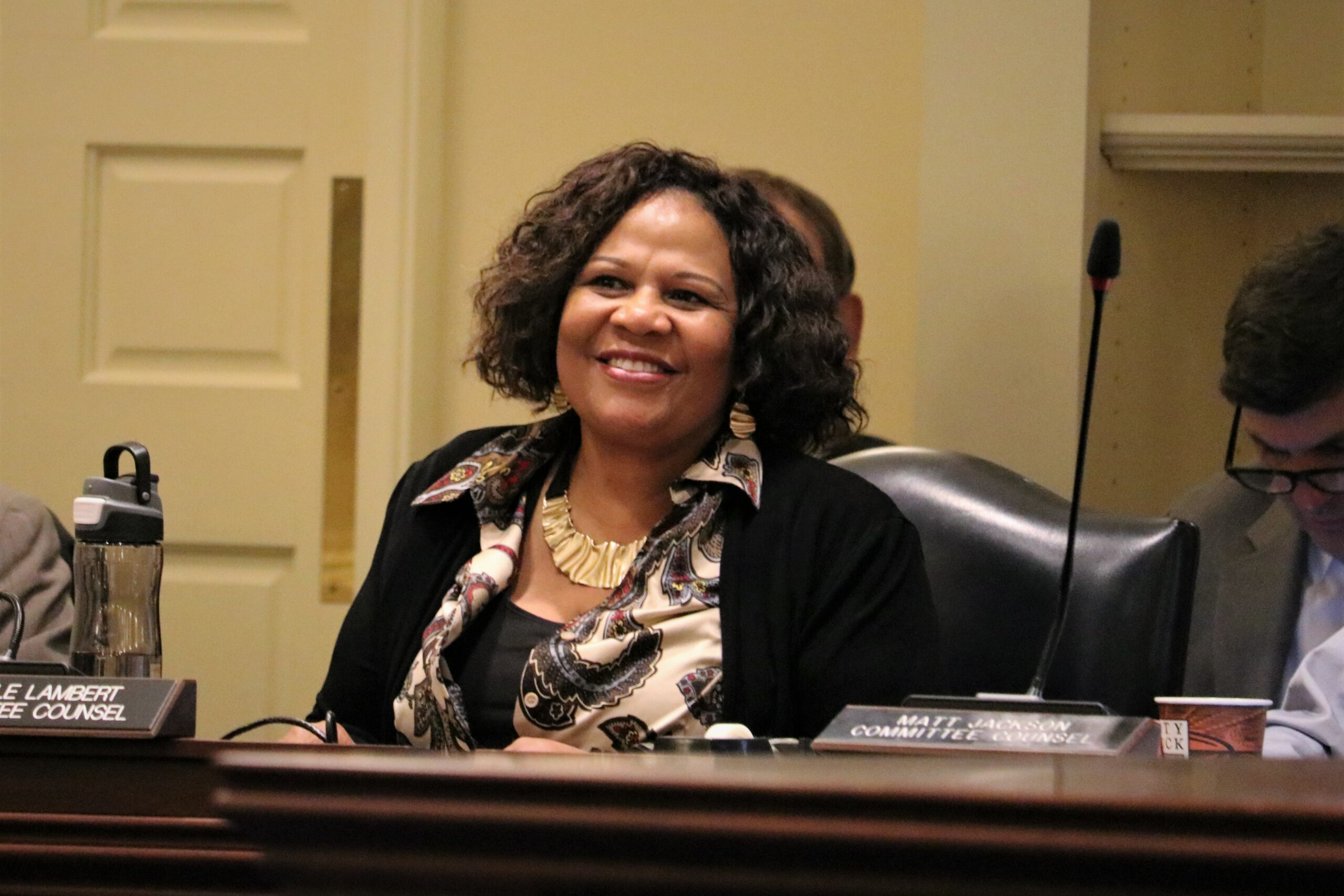Legislative notes: Senate panel waters down minimum wage bill, abortion measures move, cannabis framework passes House

The Senate Finance Committee on Friday night watered down Gov. Wes Moore’s bill to expedite full implementation of the state’s $15-an-hour minimum wage.
The panel stripped provisions in the new governor’s legislation that would have increased the minimum wage annually and tied it to the Consumer Price Index. Senators also decided to delay boosting the state’s minimum wage to $15 wage from October, as Moore (D) had envisioned, until Jan. 1, 2024.
Accelerating the state’s minimum wage has been a top priority of Moore’s and was among the most controversial of the nine bills his administration has introduced in this legislative session. The Senate panel’s vote is by no means the last word on the legislation, and it was not immediately clear Friday night if the governor will accept the committee amendments as a compromise.
The administration did not immediately respond to a request for comment on Friday night.
The Fight for $15 Maryland Coalition released a statement Friday night applauded the Senate committee for moving the bill and said accelerating the minimum wage increase would help about 175,000 low-wage workers in the state.
“But we are disappointed that the committee stripped out a key piece of the bill — tying the minimum wage to future increases in inflation. Having the wage automatically adjust with the cost of living would ensure that low-wage workers can maintain their purchasing power. History has shown that Maryland lawmakers are slow to act on wage increases, and our working families — including the 126,000 children who live with a minimum wage earner — will pay the price in the future when the minimum wage stays stagnant even as prices rise.”
Under legislation that the General Assembly passed in 2019, the state minimum wage would increase gradually on two tracks: Larger businesses had to hit a $15-an-hour minimum wage by 2025, while businesses with a dozen workers or less had an extra year to hit that pay rate.
Currently, the minimum wage for larger businesses is $13.25, while for smaller companies the rate is $12.80 an hour. But the Finance Committee kept intact a provision Moore was seeking to make all businesses hit $15 an hour in wages as quickly as possible.
Several members of the committee said Friday night they were worried that the measure would unfairly hit mom-and-pop businesses that have been battered by the COVID-19 pandemic and persistent inflation.
“That’s pretty substantial,” Senate Minority Leader Steve Hershey (R-Upper Shore) said of the minimum wage hike to $15 by Jan. 1. “Why can’t we keep something in [the legislation] for small businesses?”
But Finance Chair Melony Griffith (D-Prince George’s), who crafted the amendments, noted that many businesses in the state are already paying $15 an hour or more due to a national labor shortage.
“This bill really seeks to help people meet their needs with limited resources,” she said.
Seven Democrats on the Finance panel voted to advance the bill out of committee, while the three Republican members voted against it. Sen. Arthur Ellis (D-Charles) had an excused absence during the vote.
Whether the bill as amended by the Finance Committee becomes its final posture before the legislative session ends on April 10 is hard to say. In the Senate, it still must win the approval of the Budget and Taxation Committee, and in the House, the Economic Matters Committee has yet to act on the measure. The bill in theory could further be amended on the floor of the Senate or the House.
Abortion bills on the march
Legislation to strengthen abortion rights in Maryland continues to move swiftly through the General Assembly.
On Friday, the House passed the bill that would put a measure to enshrine abortions rights in the Maryland Constitution on the statewide ballot in 2024, by a 99-37 party-line vote. The Senate version of the bill received preliminary approval on Friday following an hour-long debate and seven Republican attempts to amend it.
Additionally, the Senate gave preliminary approval Friday to a measure that would expand reproductive health services on public college and university campuses in the state. That debate didn’t last quite as long, even though GOP senators offered six amendments that were all defeated, largely along party lines.
The House vote, a foregone conclusion, occurred without debate. Republicans had offered three floor amendments earlier in the week, all of which were defeated soundly.
On the Senate floor Friday, the Republican amendments to the constitutional amendment bill largely tried to subtly tweak language in the legislation. The longest debate was over an amendment from Minority Leader Steve Hershey (R-Upper Shore), who sought to insert the word “safely” in a section of the bill that addressed the abortion procedure.
“All we are attempting to do is add the word ‘safely,’ just to make it clear,” said Sen. Mary Beth Carozza (R-Lower Shore).
But Sen. Dawn Gile (D-Anne Arundel), the floor leader for the legislation, argued the language was unnecessary because state law assumes that medical practitioners will be handling their duties safely. The Republican amendment, she added, “somehow makes the implication that abortion providers are bad actors.”
Gile’s assignment as floor leader for the abortion measure was no accident. She was elected last year from a swing district where abortion rights became a pivotal issue and likely contributed to her surprisingly robust 11-point victory over then-Del. Sid Saab (R).
The most emotional presentation came from Sen. Bryan Simonaire (R-Anne Arundel), one of the legislature’s most vocal opponents of abortion, after he offered an amendment to prohibit the procedure when a fetus is viable unless the health or life of the mother is at risk.
“I haven’t gotten up on the floor much this year,” he said. “But this is an issue I’m passionate about.”
Simonaire described his elation at being present during the births of his seven children and compared that experience with abortion.
“One brings unspeakable joy and one brings unimaginable pain and destruction,” he said, as the Senate chamber grew unusually quiet.
But his amendment, like all of the others, went down to defeat.
The constitutional amendment bill — sponsored by Senate President Bill Ferguson (D-Baltimore City), just as the House version is sponsored by Speaker Adrienne Jones (D-Baltimore County) — will be up for a final vote early next week. The same is true for the reproductive health services bill, sponsored by Sen. Brian Feldman (D-Montgomery).
The House version of that bill, sponsored by Del. Stephanie Smith (D-Baltimore City), has yet to receive a vote in the House Health and Government Operations Committee. But its passage in both chambers seems inevitable.
House passes cannabis industry rules
The Maryland House of Delegates approved a bill that has a main goal “getting rid of the illicit drug market” on Friday.
Without debate, the chamber voted 103 to 32 to pass House Bill 556, which lays out regulations for Maryland’s recreational cannabis industry.
Del. C.T. Wilson (D-Charles), chair of the Economic Matters Committee that reviewed the legislation, was the only lawmaker to speak on the floor.
“It’s our duty to ensure that Marylanders can receive the benefit of ownership in this industry. That citizens can have access to safe and effective cannabis without fear of adverse health effects, or violence. That small businesses in Maryland can flourish in this industry. That communities that were ravaged by the War on Drugs are in some small part to finally benefit from marijuana,” Wilson said.
“And personally my goal is to change the narrative that Black men can finally stop being arrested and murdered for using and selling cannabis,” he added.
Legalized cannabis is estimated to be a $1 to $2 billion industry in Maryland alone.
Editor’s Note: This story was updated to include the vote tally from the Senate Finance Committee vote on the minimum wage bill, and to correct a link to the cannabis legislation.





 Creative Commons Attribution
Creative Commons Attribution